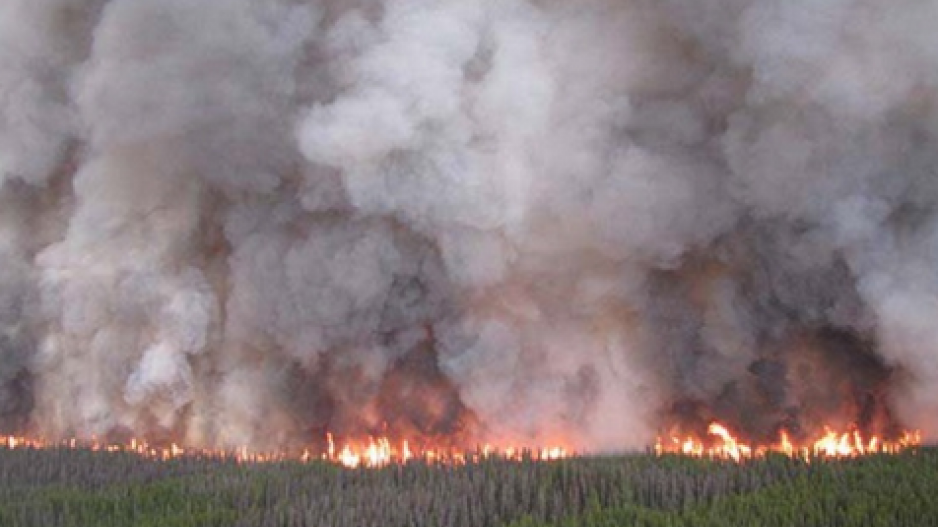This summer has been the worst wildfire season in Canadian history.
Simultaneous fires across many provinces caused nearly of forests to burn, forced over 155,000 people to evacuate their homes and released dangerous smoke across tens of thousands of kilometres.
While forest fires are a natural, annual disturbance in Canada, 2023 has seen a dramatic escalation in intensity, frequency and area. It has made international headlines and prompted a global response – for good reason, because what is happening this year is a literal smoke signal that is impossible to ignore.
We are facing a defining moment for our forests, which when healthy and resilient protect critical biodiversity, regulate temperatures and remove carbon from the atmosphere. But we are now bearing witness to a rising burden of wildfires, driven by hotter, drier weather and inadequate forest management.
Lost habitat, worsened climate change, health risks – the impact of record wildfires is widespread. It’s an economic burden as well, as companies and governments are increasingly less likely to source lumber from countries that aren’t doing enough to stop forest degradation.
For example, the European Commission has now introduced the European Union Deforestation-free Regulation (), which aims to minimize EU-driven deforestation and forest degradation by promoting the consumption of ‘deforestation-free’ products. If Canada doesn’t take action to meet these requirements, it could have serious consequences for our forestry industry.
For so many reasons, it’s abundantly clear that we must start seeing the forest for the trees.
The roadmap to preserving our forests is a complex one and can undoubtedly feel overwhelming. However, we do know that forest stewardship – including sound efforts towards protection, conservation and restoration, as well as responsible management of forest products and services – can help.
Indeed, strict requirements, such as those found in Forest Stewardship Council (FSC) Canada’s , are practical, important methods by which we can effect change. This standard exists to protect forests’ vital functions and safeguard them from deforestation and degradation, while embedding strong social protections for workers and Indigenous Peoples. Collaborations with the latter help incorporate their traditional knowledge of these lands – including the use of prescribed burns – which help foster ecosystems that can withstand forest fires.
Meanwhile, the forestry sector employs , who are the engines behind a $25.2 billion industry. By following modern best practices, these companies play a big role in promoting forest health and resilience over the long term. It’s also good for business: By establishing truly sustainable practices and accessing an extensive network of FSC certified suppliers, companies can earn trust with customers who increasingly seek out eco-friendly products.
It must be a collective effort to make a difference. We must work together to set and meet a higher bar in forest management to cultivate more resilient forests. Yet despite a growing awareness of the cumulative impacts of climate change and human activities on forests, current government policies are insufficient. While forestry laws in Canada have been historically considered some of the best in the world, they must now evolve in step with an evolving environmental crisis.
At FSC, we have spent years developing standards underpinned by principles that can be locally adapted and therefore used anywhere. The challenge is that, up to now, forests that meet our certification thresholds have been considered a “nice-to-have.” Yet to succeed in the face of the climate crisis – and to quiet the threat of massive wildfires – these extra measures to care for our forests have to be treated as “must-have” solutions and be relied upon to chart the way forward.
Canada the third-highest forest area in the world. It is our responsibility, now laid bare for all to see, to better protect this vital resource and the species and people that depend on it.
Francois Dufresne is president of the Forest Stewardship Council (FSC) Canada.




